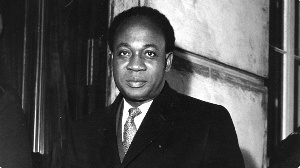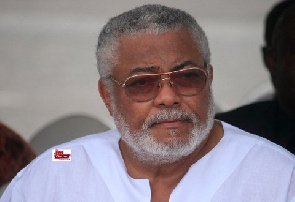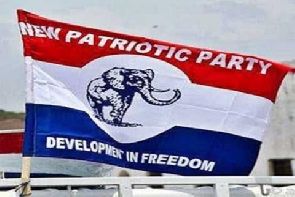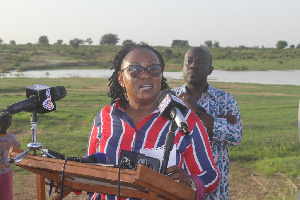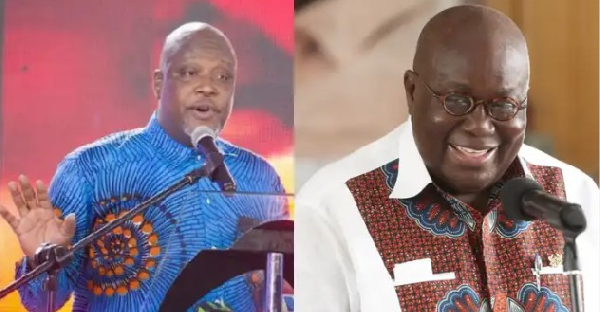The story of how the Chinese Ambassador to Ghana told Kwame Nkrumah about 1966 coup

There is a famous picture of a despondent-looking Osagyefo Dr Kwame Nkrumah which mostly comes with the caption, ‘this is how Kwame Nkrumah reacted when he received news of his overthrow’.
That photo of Nkrumah in a suit, burying his face in his palms while a walking stick rests on his thighs is mostly shared as the photo of Nkrumah’s immediate reaction to the coup that toppled his government.
It does however appear that the photo and the narrative around it might not be true, at least from a recount of events by a man who was with Kwame Nkrumah at the time of the incident.
Alex Quaison-Sackey, in his book ‘The Makings of A Diplomatist: The Memoirs of Alexander Quaison-Sackey’, detailed how the then Chinese Ambassador to Ghana, Mr Hua communicated the first coup attempt and subsequent overthrow of the government to Kwame Nkrumah.
“The arrangement was that the official delegation should assemble at Osagyefo’s suit as soon as we had washed and unpacked, to discuss our meeting with the Chinese government officials and the banquet in the evening. As soon as we had washed and unpacked: No sooner had we assembled than the security officer, announced that the Chinese Ambassador to Ghana, Mr. Hua wanted to see Osagyefo Dr. Kwame Nkrumah.
“At first we were hesitant to open the door as we did not want the Chinese to prevent us, by an argument, from going to Hanoi. But on second thoughts, the President asked that the Ambassador be ushered in. With a shaky hand and a quivering voice, Ambassador Hua read from a piece of paper that contained a monitored message from the Chinese Embassy in Accra. The message read that “a section of the police and a section of the army are attempting to seize power in Ghana. There is fighting going on around Flagstaff House. The leader of the coup-makers is Colonel Kotoka.”
Quaison-Sackey further stated that even though Nkrumah dismissed that first message, believing the coup-makers won’t succeed, the Chinese Ambassador came back later with a different report.
“Those of us present – Messrs. Dei-Anang, Okoh, Kwesi Armah, F. S. Arkhurst, Yaw Eduful, and myself – all showed surprise. But Osagyefo put up a bold front and said that this was nothing, it would fizzle out. The Chinese Ambassador withdrew but returned soon after with another message which confirmed that there had been a coup d’etat in Ghana and that Major-General Charles Barwah had been killed. There were demonstrations before the Chinese Embassy while there was still shooting at Flagstaff House.
“The rest of our delegation was waiting at the hall but, from their faces, it was evident that they had heard about the coup. Osagyefo told the group that “they say some people are trying to take our power in Ghana. Let them try.” There was a discussion about whether we should go to the banquet that night. I had earlier suggested that we should get the Chinese government to give us a special plane so that we might proceed at once to Cairo and, if possible, from Cairo to Accra. I insisted that we should cancel our plans for Hanoi. Osagyefo pounced on me and said “What do you mean? As for you, Quaison-Sackey, if I follow you, I will get nowhere.” He said this in the Fante language. Anyway we went to the banquet at about 8 p.m. Chinese security,” he recounted in his book.
On February 24, 1966, Nkrumah was deposed via a coup by the National Liberation Council in an operation dubbed “Operation Cold Chop”.
The NLC was led by Colonel Emmanuel Kwasi Kotoka and Major (later General) Akwasi Amankwa Afrifa.
Click here to download Press radio mobile App

Source: www.ghanaweb.com

